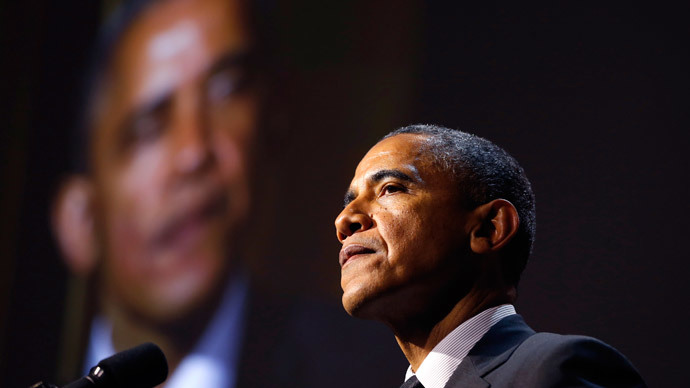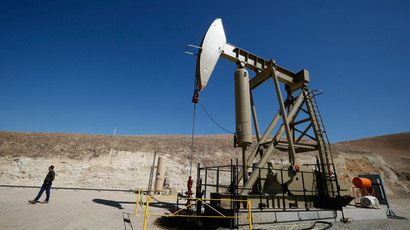EU presses Obama to expand US fracking under TTIP while banning it in European countries

Under negotiations for a new trade deal between the United States and Europe, the release of a secret memo shows Americans are being pushed to increase oil and gas exploration through the process of fracking and other methods.
Obtained by the Huffington Post, the memo contains the energy policies that EU negotiators are hoping to see implemented in a finalized Transatlantic Trade and Investment Partnership (TTIP). Among the EU’s positioning is that “energy goods” – classified as "coal, crude oil, oil products, natural gas, whether liquefied or not, and electrical energy” – are determined to “automatically” comply with the processes needed to authorize export.
"Exports of energy goods to the other Party shall be deemed automatically to comply with any conditions and tests foreseen in the Parties’ respective legislation for the granting of export licenses," the document states.
The draft also wants all parties involved to “recognize that it is desirable to strengthen the important role that trade in raw materials and energy plays in their relationship and to enhance this role through sustained and gradual liberalisation.”
With the majority of TTIP negotiations being held in secrecy, it’s unclear to what extent the EU’s preferences have been met. The document was reportedly first sent to American officials in September.
If implemented, however, the terms would mark a significant shift in US energy policy. Crude oil exports have been banned by the US since 1975. According to a recent Wall Street Journal report, Energy Secretary, Ernest Moniz, wants to consider relaxing the ban, and officials believe the White House can issue exemptions to some energy companies in order to allow them to export crude oil.
As RT noted previously, the idea doesn’t currently have Democratic support in Congress, but the statements could be a signal that the US is considering methods to reduce European dependency on Russian energy in the wake of the Ukraine conflict.

For environmentalists, the position staked out by the EU in the memo has raised concern over the possibility that fracking – already a controversial process – will be expanded across the US alongside offshore drilling and natural gas exploration. Not only would boosting American energy exploration hurt the environment, they say, it would also slow down efforts to move the world towards renewable energy.
"Encouraging trade in dirty fossil fuels would mean more dangerous fracking here in the U.S. and would push more climate-disrupting fuels into the European Union," Ilana Solomon, director of the Responsible Trade Program at Sierra Club, told Huffington Post. "The oil and gas industry is the only winner in this situation."
Over the last year, fracking in particular has come under fire in numerous states and on the national level, where the process is being blamed for record levels of earthquakes in multiple states. After highly pressurized water, sand, and other chemicals are blasted into layers of rock in order to free oil and gas, the wastewater is pumped into underground wells – many of which have been built along fault lines and cause friction near them.
Notably, the EU’s energy preferences would see fracking rise in the US while the practice comes under harsher scrutiny in Europe. Already, France and Bulgaria have barred fracking, while other EU countries such as Germany are considering similar bans.
The revelation for the EU’s energy preferences also comes as opposition to the TTIP has grown over the last year. According to Reuters, the potential trade deal could bring up to $100 billion in economic activity and up to 1 million new jobs, but concerns over the environment, even fewer tariffs, genetically modified foods, and the general secrecy surrounding the negotiations has brought criticism from both the left and the right.
"The TTIP is going to damage our personal freedoms, our food safety laws and our welfare protection," Belgian trade unionist Lazaros Goulios told Reuters. "These are secret negotiations. Who knows what is happening?"














